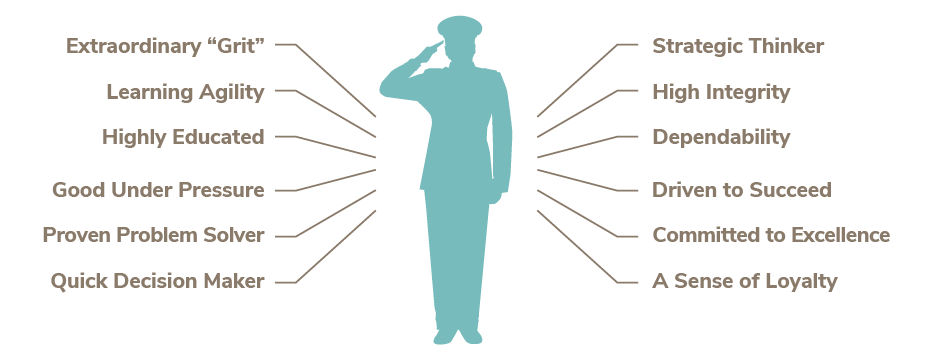Our Blog
Interested in Subscribing to our blog?
Your Behaviors Determine Your Success
Recently, I read the book High Altitude Leadership, by authors Chris Warner and Don Schmincke. The authors use the metaphor of climbing dangerous, high-altitude mountains to explore what it takes to succeed in leadership and business. When it comes to “making it to the top,” the book emphasizes several key principles that apply to mountaineering and leadership. Some noteworthy principles are: Confronting fear and uncertainty, building resilience, teamwork and trust, strategic risk-taking, continuous learning and adaptation, maintaining focus on the goal, ethical leadership and integrity, and managing energy and resources.
Random topic to blog about, I admit. However, I’m training for an endurance race right now. We’ll see how it goes, but I must admit, I drew many parallels between climbing mountains, running an endurance race, and the JMO transitioning to business and having a successful career.
Naturally, I’m looking for the best trail shoes, socks, and shorts. The best water pack. The best energy gels and refueling sources. It’s natural to think the better the gear I have, the better I’ll do. Yes, to a certain degree, that’s true. However, I can tell you this… No matter how great the shoes I have, not only will my legs be screaming at me to abandon, but my mind will as well. I will be alone in my head for long periods of time with ever increasing levels of discomfort. The shoes that I buy won’t going to get me to the finish line, no matter how technical they are. The company that markets their gear the best, won’t get me to the finish line. My behaviors will. Simply put, behaviors will determine your success.
The behaviors of staying discipline in my training, surrounding myself with the right people, and staying committed to the goal will. The behaviors of continuously learning and adapting in my training, managing my energy levels and fueling my body with the right resources will. Building resilience through my training so that I have an indominable spirit on race day, and most importantly, my teammates and my crew consisting of my family and friends will be what get me across the finish line.
What will set you apart?
So, how does this apply to the Junior Military Officer making the transition? Good question! Might seem like a stretch, but: Behaviors are what matter.
Behaviors are what carry you to the top. Behaviors are what will make you successful. Behaviors are what companies will hire you for. Behaviors are what will allow you to grow within an organization. Behaviors will determine your success.
Most company recruiting strategies are inadvertently designed to screen for “sameness” – their job descriptions, recruiting channels and resume screeners narrow the candidate pool often to a traditional pool of industry candidates with the “right experience”. The JMO is less than 1% of the working population, so we are already at a disadvantage. Very often, non-traditional backgrounds (The JMO) are screened out.
Now, companies DO strategically diversify to build broadness within their leadership pipeline. Companies come to Cameron-Brooks, and we’ve continued to exist as a company for over 50 years because of the leadership advantage the JMO possesses. There is a very strong business case for the JMO. For the Developmental, Complex roles that companies come to Cameron-Brooks for, they believe that it’s easier to take a strong performer and teach them industry knowledge than hire someone with industry experience and teach them how to lead well.
The most important factor in recruiting junior leaders is leadership potential: track records, life experiences, backgrounds and personal characteristics. When looking for a unique individual, they turn to unique recruiting resources.
Now that I’ve given my plug for the JMO, how will the 1% differentiate themselves from the 1%?
**Actually, JMOs are less than 1%… They’re .2% of U.S. workers**
Behaviors!
I have the privilege of talking to Junior Military Officer’s all day, every day. I hear a lot of the same things. Common themes and questions such as: “How will a certification help me?”, “What certifications should I get?”, “Does it matter that I don’t have an MBA?”, “What if I don’t have a business-related degree?”, etc.
They are good questions. I asked the same one’s when I made the transition. I was worried about those things. Now that I have a peek behind the curtain, I can speak to them. It also helps that I sit 10 feet away from the CEO of Cameron-Brooks, and I’m able to listen in on calls, as well as read requirements that companies give us to match Officer’s to them.
For example, I can attest that not one company has told us they only want to interview someone with a PMP. Not one company has said they have to have an MBA.
While having an MBA, certain certifications, and a business-related degree certainly helps you, the companies will ultimately hire you for your behaviors. For how well you interview. For effectively communicating your military background. For the way you talk about your leadership style. For giving credit to others, such as your team, your NCO’s, mentors, and coaches in your life. For showing humility. For having a great work ethic. For demonstrating and showing your bias towards actions. For showing that your track record of performance. For getting results. Your ethical leadership and integrity. For managing precious resources and continuous learning and growth. Yes, a massive run on sentence. They are looking for the ‘Genius of the And’ candidate. Your behaviors determine your success.

Commonalities
Hope you enjoyed this article. If you want to know more about what companies look for when hiring, or just want to chat about your options, send me a message below.
Brock Dudley
210-874-1495 / bdudley@cameron-brooks.com



